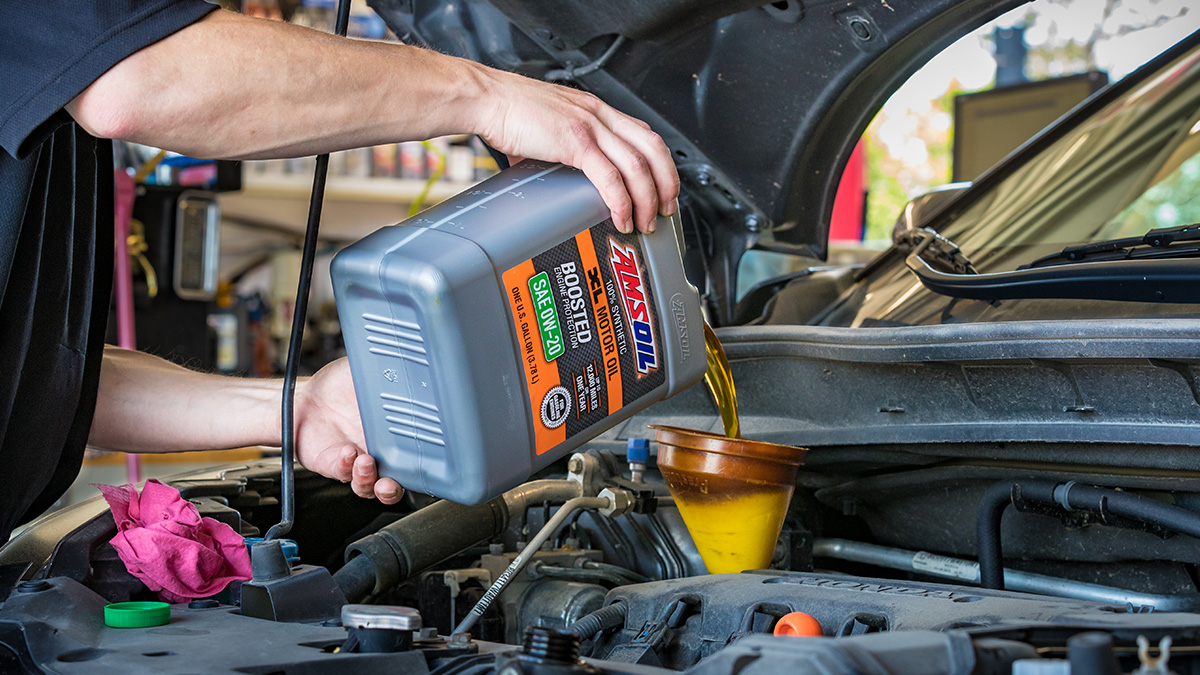As you might expect, oxygen causes engine oil oxidation.
Oxygen comprises about 20 percent of our atmosphere. It’s the third most common element in the universe. Without it we’d all be doomed.
And yet too much of it can cause problems inside your engine.
What is oil oxidation?
Oxidation occurs when the addition of oxygen changes a chemical substance.
Take an apple, for example. Everyone knows that oxygen will quickly cause a cut apple to turn brown.
Or metal. Oxygen can cause rust to form on some metals in a matter of days. Have you ever noticed your brakes grinding after having left your car sit for a couple days in wet weather? That sound is your brake pads scouring rust from the rotors.
Motor oil isn’t immune to oxidation. As oil reacts with oxygen, a permanent chemical change occurs that causes oil molecules to lose one or more electrons. This can result in several problems, including…
- Formation of sludge and deposits that reduce engine efficiency and increase the risk of engine failure
- Increased oil viscosity, which reduces fuel efficiency
- Additive depletion, reducing the oil’s effectiveness
- Accelerated degradation, causing you to change oil more often
Heat accelerates oil oxidation
Every 18ºF (10ºC) increase in temperature doubles the rate of oxidation. That doesn’t bode well for motorists driving modern turbocharged vehicles that create increased heat compared to older vehicles.
Heat isn’t the only oxidation accelerant – certain metals, acids and water can also hasten oxidation. So can large volumes of entrained air, known as foaming.
Can we prevent motor oil oxidation?
Unfortunately, no. Nature is relentless, and all motor oil will eventually oxidize to some degree.
But we can dramatically slow oxidation through use of synthetic base oils and quality oxidation-inhibitor additives.
AMSOIL synthetic lubricants are formulated using base oils with a saturated molecular structure, meaning oxygen is prevented from attaching. This provides inherent heat and oxidation stability compared to unsaturated conventional oils.
And, because AMSOIL synthetic lubricants don’t contain contaminants like conventional oils, their base composition doesn’t accelerate oxidation.
AMSOIL synthetic lubricants also contain high-quality oxidation inhibitors. These additives are sacrificial in nature, meaning they’re designed to deplete over time. Because AMSOIL synthetic lubricants have inherently better oxidation resistance, their oxidation inhibitors last longer since they don’t deplete as rapidly.
What’s that to me?
That all adds up to a motor oil that…
- Lasts longer despite intense heat and stress
- Helps keep your engine cleaner and more efficient
- Saves money in the long run through reduced maintenance
In fact, AMSOIL Signature Series Synthetic Motor Oil delivers 28 percent more acid-neutralizing power than Mobil 1, helping engines stay cleaner, longer.¹
So, while oxygen lets you breathe, AMSOIL synthetic motor oil lets you breathe easy since your engine is protected against oxidation.
Updated. Originally published Oct. 17, 2018.
¹Based upon independent testing of Mobil 1 Annual Protection Full Synthetic 5W-30 and AMSOIL Signature Series 5W-30 in ASTM D2896. Oils purchased July 2020.






28% more calcium sulphonate in AMSOIL SS compared to M1 Annual Protection 5w30?
My friend has heard from local Harley Davidson mechanics that synthetic oil doesnt cling to motor parts as well as conventional oil when motor is idle. Because of this supposed condition they swear that using synthetic will do much more harm during starts since metal-on-metal. I say BS. How about doing on article on that subject sometime.
What is the shelf life of AMSOIL full synthetic oil? Last year when you were selling off the ACD 10W30 Diesel Engine Oil inventory I purchased 4 gallons for my truck. Right now I still have AME 15W40 in the truck with only 4700 miles on that oil. I will not reach 3 times OEM recommendation until year-end 2022. Will my ACD 10W30 still be usable? I look forward to hearing from you. Thanks.
Glenn
Hi Glenn,
Shelf life on AMSOIL synthetic motor oils is five years, as we explain in this blog post.
Thanks,
John